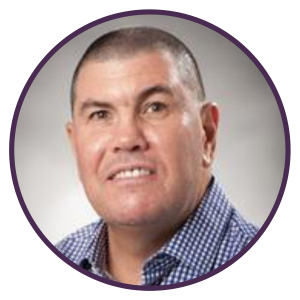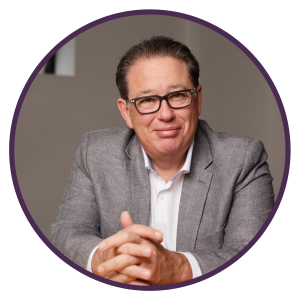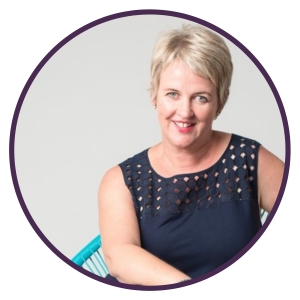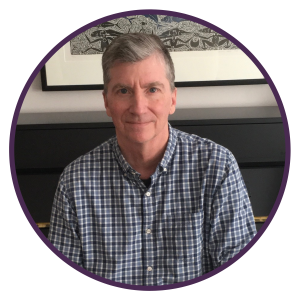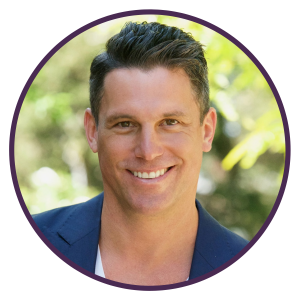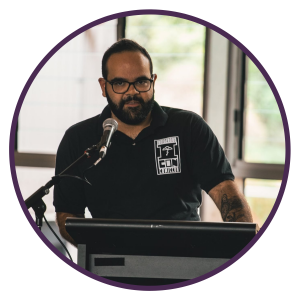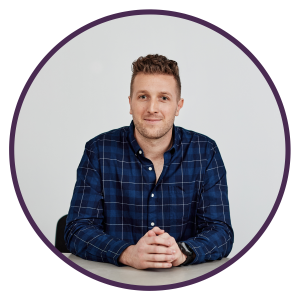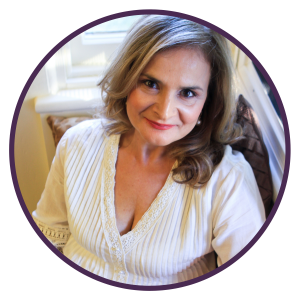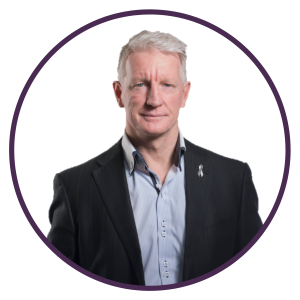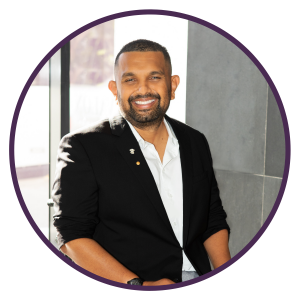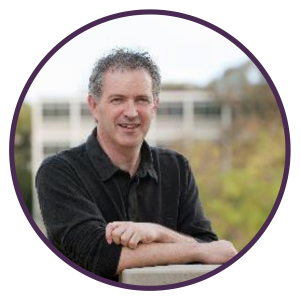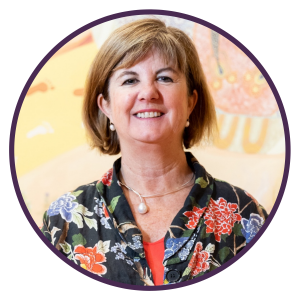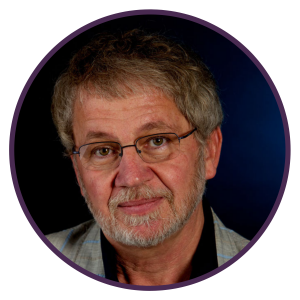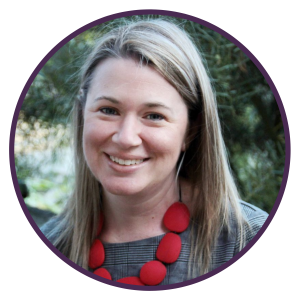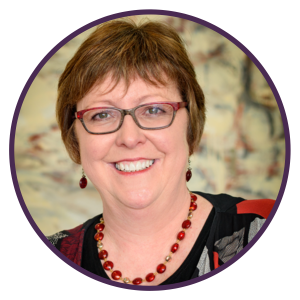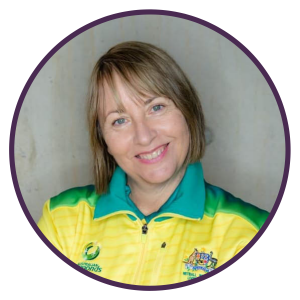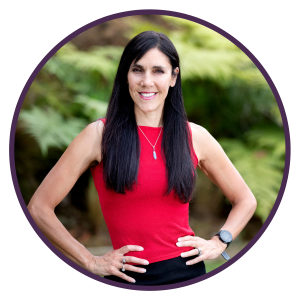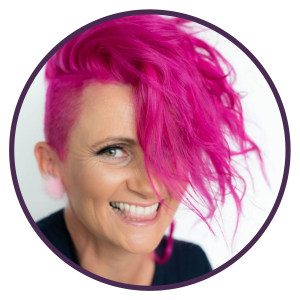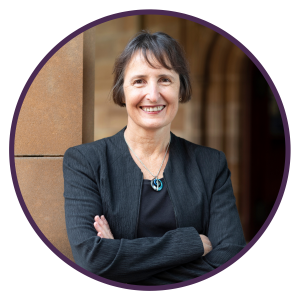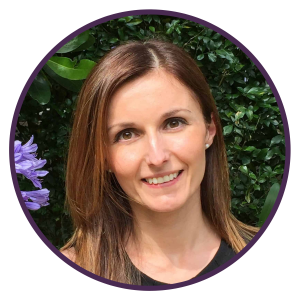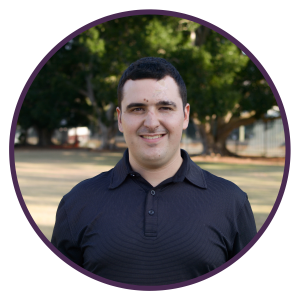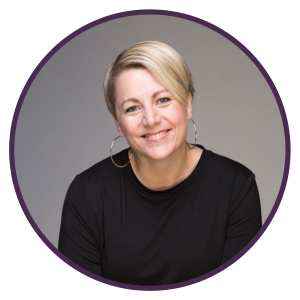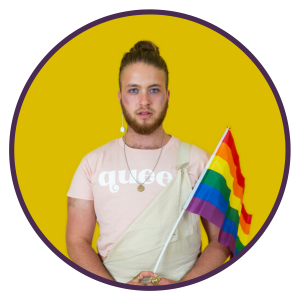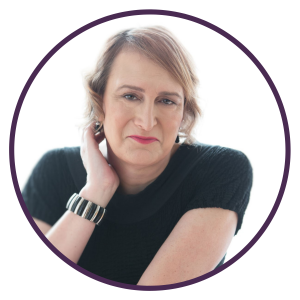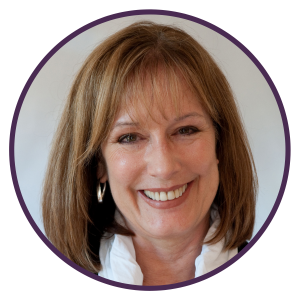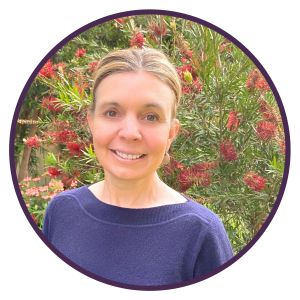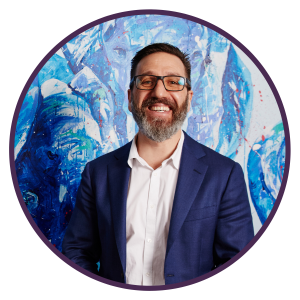Episode 10: Who is Sally Goldner AM?

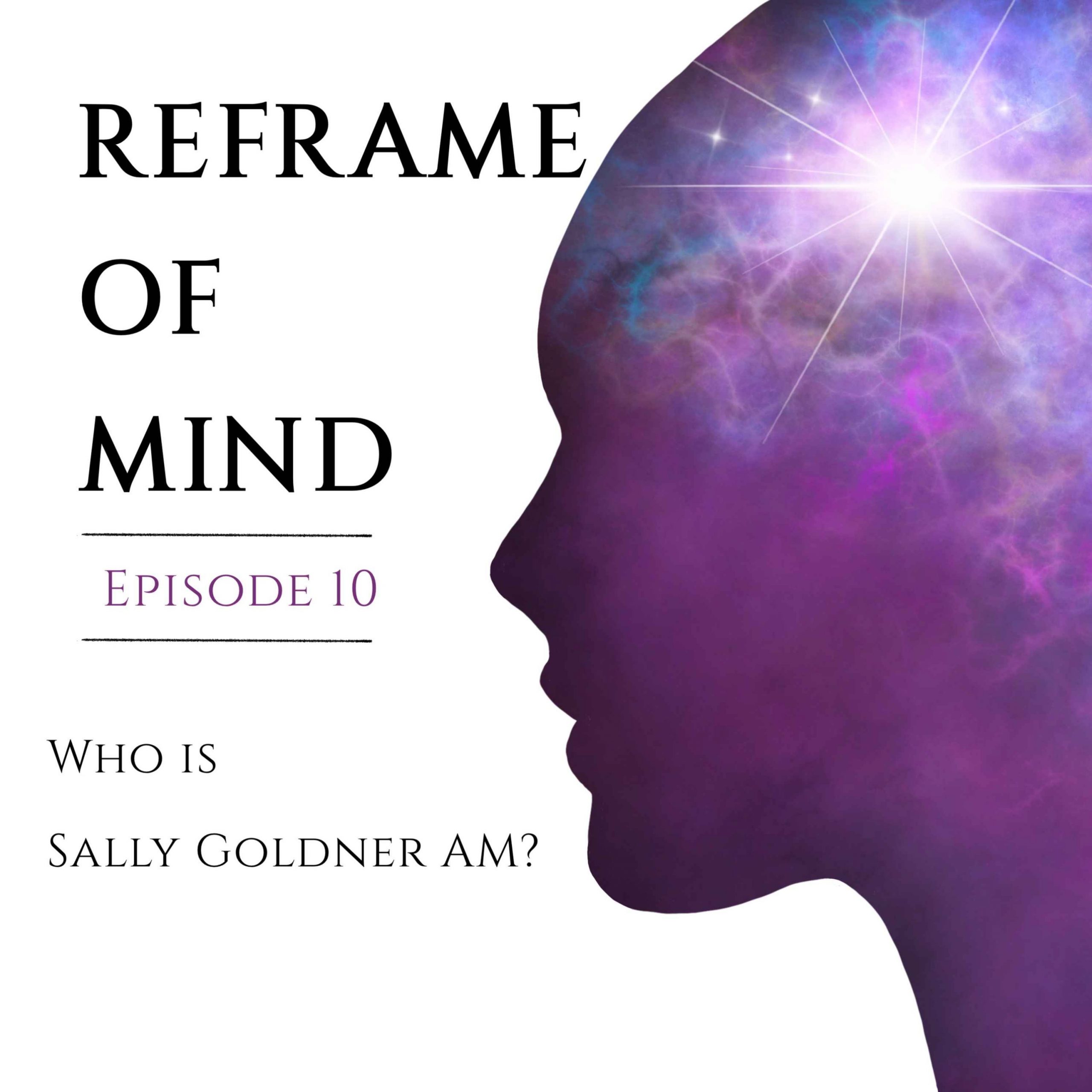
Nobody wants to be known as the “token diversity hire”, and rightly so.
Diversity is about more than just filling a quota. It helps marginalised people be seen and add their voice to everyone else’s.
Who better to have a chat about this with than trans re-lator, speaker, educator and coach, Sally Goldner, AM?
Sally Goldner is a strong leader and advocate within her community, and has enormous strengths any good leader would aspire to. She’s been advocating for change long before keyboards became the fertile ground from which we shout. Sally first disclosed as trans in 1985, at which time it had only been seven years since the first Mardi Gras in Sydney, which in 1978 was actually a protest march.
In 1999, Sally became a founding committee member of what became Transgender Victoria which, in 2013 was a major contributor to additions to the federal Sex Discrimination Act covering gender identity, sexual orientation, and intersex status.
In this episode of Reframe of Mind, we talk with Sally about the importance of embracing diversity and inclusion in the workplace, as well as in the broader context of life.
You can connect with Sally on her social media directly below:
Jump to: Episode Transcript | Show Notes | Other Guests | Gallery
Follow us now on your podcast app!
Reframe of Mind contains discussion around mental health that may be disturbing to some listeners. If you are concerned about yourself or someone you know, please seek professional individual advice.
Some of the main crisis lines in Australia are listed on our Mental Health Crisis Resources page, including those that operate 24/7 like Beyond Blue and Lifeline.
Guests this episode:

Sally Goldner
Diversity Trans-relator, Educator, Speaker, Life Coach & Consultant
Gallery
Jump to: Episode Transcript | Show Notes | Other Guests | Top of Page
Show Notes:
Here’s some extra things you might not know about Sally, as well as some of the things mentioned during the episode.
Read some of the articles Sally has written for SBS
Watch Sally discuss why we need to be doing better in aged care:
Sally is a founding member of Transgender Victoria:
Sally has also advised diverse committees and advisory groups including:
● the LGBTI Police Working Group (and its predecessors)
● the Victorian government LGBTI Justice Working Group from 2006-10 and 2015 to 2017
● Hobsons Bay LGBTI Advisory Group (2011-2016)
● Manningham Mental Health Advisory group (2013-2018)
● Jewish Community Council of Victoria LGBTI advisory group (2009-2012)
Jump to: Episode Transcript | Other Guests | Gallery | Top of Page
Transcript
Andy 0:00
We acknowledge the Yuggera and Kaurna nations as traditional custodians of the land on which we work, live and learn, and their continuing connection with the land, waters and community. We pay our respects to them and their elders past and present
Louise 0:14
All content related to this program is for general informational purposes only, and contains stories and discussions around mental health that may be disturbing to some listeners. If you’re concerned about yourself or someone you know, please seek professional individual advice and support. More details are contained in our show notes.
Sally Goldner 0:32
I didn’t feel I valued myself for the first 29 and a half years of my life up until 27, April 1995, which was the first time I ever heard the word transgender. And at that point I realized was I thought, I’ve gone a long way down by fighting this thing being gender. I wonder what would happen if I went with it?
Louise 0:53
That’s diversity trans-relator, speaker, educator and coach Sally Goldner AM and this is Reframe Of Mind.
Andy 1:02
The podcast that cuts through platitudes and gets to the core of living authentically challenging our assumptions and improving mental health with the guidance of good science, philosophy and learning from other people’s lived experience. Were your hosts, Andy Le Roy
Louise 1:15
And Louise pool. So what makes a good leader?
Andy 1:18
When we hear the word diversity like it’s used as the next hot buzzword. What do we think it means?
Louise 1:23
we see plenty of polarizing statements and actions reflected back to us in our media from day to day, or even minute to minute,
Andy 1:29
whether it’s traditional formats like talkback radio and current affairs programming, or the social media platforms, there’s never been a better time to get your fill of confirmation bias.
Louise 1:39
It seems odd now to think about a time before we could go online and feel satisfied about signing an online petition. But even they still need their leaders and advocates to get off the ground.
Andy 1:48
Sally Goldner is a powerful leader and advocate within her community, and has enormous strengths any good leader would aspire to.
Louise 1:55
She has been advocating for change long before keyboards became the fertile ground from which we shout.
Andy 2:00
Sally first disclosed as trans in 1985, at which time it had only been seven years since the first Mardi Gras in Sydney, which in 1978, was actually a protest march.
Louise 2:12
So I think it’s easy to forget that amongst the glamour that Mardi Gras has become that today’s parade started as a march against a system that denied non heterosexual people the right to love their way.
Andy 2:22
Yeah. And I think it was instrumental in contributing to the length of time it took me to come out, to be honest, because I came out when I was about 23. You know, a lot of that was all the history of seeing images like that on the TV when I was seven years old. And the comments I was hearing from from family and people in our friendship groups, or the family’s friendship groups who were saying quite derogatory things about homosexuals, you know, the names that we later claimed as our own as a sense of power were actually hurled as insults at them and to hear that kind of language really drove home the message to me that it wasn’t okay to be that, you know, thankfully, the world’s a lot of different now,
Louise 3:01
It’s work that we still need to continue. I mean, over 40 years later, we’re still not done. People from diverse communities still have to fight for what should be a basic right to be seen to be heard, to be respected.
Andy 3:12
Yeah, absolutely. And this is why I love Sally’s work so much, because what she centres on is diversity, valuing each person as the unique individual they are.
Louise 3:22
As we spoke to her, it became obvious that her approach was one of curiosity and humility to bring out the best leader in all of us.
Andy 3:29
So a little bit more background on Sally in 1999, she became a founding committee member of what became Transgender Victoria,
Louise 3:36
Wich in 2013, was a major contributor to the additions to the federal Sex Discrimination Act, covering gender identity, sexual orientation, and intersex status,
Andy 3:44
having not only been present for and participated in so much change for her community, we were curious about how it felt for her to know that she had also directly contributed to positive outcomes in legislation in the continuing pursuit of equality.
Louise 3:59
What was it like being an early voice for equality, you were doing activism at a time where even just the you know, lesbians and gays weren’t accepted, let alone trans people, there must have been such a burning sense of something that you have to do, despite that kind of adversity in front of you with that?
Sally Goldner 4:20
Well, look, I think in terms of the words “have to” as an introvert, I’d also have to sort of reclaim that part of me or claim even for the first time because we live in, I think also, in a very extrovert-dominated world. I remember in one of the introvert books I read, there’s a saying that introverts don’t necessarily speak up because they want the limelight. They speak up because of a deep sense of passion about it. So yes, there was a part of me that wanted to speak up and get that visibility and understanding going and then as you sort of touched on, definitely, it was not easy in a lot of circles. There were very few allies at that time. So for example, when Victoria first added sexual orientation and gender identity to the state anti discrimination law, there wasn’t a lot of kerfuffle at the time about sexual orientation. But there was a lot of the stupid negative stuff about trans and we only really had about two organizations supporting us, we had what was then called the Victorian Gay and Lesbian Rights Lobby, now Victorian Pride Lobby, supporting us and an organization called Freedom Socialists, Australia. That’s a pretty low number for a major piece of legislation to get us on the board. So it did feel like a times were fighting alone, we had to educate a lot of gays and lesbians about the legislation. And a lot were cynical, and a lot that, I can’t remember, I don’t think that any points there was any talk of dumping gender identity, for example, in 2010. In America, they tried to get some national equality laws through and transgender people got thrown under the bus. And in the end, it didn’t get through at all. So it was very difficult at that time. And then later on, even say, early 2000 and 10s, I remember it both the 2010 and 2013 election we were trying to get, we didn’t get it not 2013 Sorry, but 2010, we were trying to get a raft of issues into mainstream media. And we get comments like “oh well, you know, we’re doing the the gay’s stuff, because we’re talking about marriage equality” but in 2010, we didn’t have any national anti discrimination law here. There were all sorts of other issues, regulations with passports. So it did feel like we were sort of being, you know, asked to take a ticket and wait at times. And it wasn’t easy trying to push through. And there were the good, you know, recount the amount of stories and abusive transphobic and bi-phobic remarks that I’ve experienced, and it wasn’t easy, and thankfully, I did get, did have various supports that it also felt frustrating at times, I spent a lot of my mental health time having to debrief about the frustrations of this hypocrisy that we’ve touched on, rather than actually growing myself. So it was, you know, it wasn’t easy at times is the honest answer.
Louise 7:14
Do you feel like advocacy is your purpose?
Sally Goldner 7:17
Ohhhh not so much anymore, that has faded. And the issue that I’m really keen is about this issue of leadership and diversity in leadership, but also not just diversity in terms of who people are. But how we create more diverse styles of leadership, regardless of who the person is. That’s becoming an even bigger passion now. And also, I’m one of these rare people who, you know, you’ve heard there’s a saying most people would rather die than do public speaking, I’d much rather do public speaking than die, including talking on a podcast. And so the thing that I love to do is I like to sort of give a full. I call it the extended dance mix personal story, which covers more than say, gender and sexuality, but not just as a story. But what have I learned from that? How does it benefit my leadership? That’s sort of where personally, I’m heading now. And I really want to do more of that.
Andy 8:17
Louise and I were communicating to each other this morning that, really, because of the work that you’ve done, and advocates like yourself, have put in over the years, our attitudes and beliefs are most likely influenced by the work of you and the people around you who have advocated over the years in so many ways. How do you get to a point of strength to shape public opinion and policy as a diverse leader?
Sally Goldner 8:37
I would say it is about things that sound basic, but obviously not simple, like persistent momentum, trying to take a long term view, which is not always easy when even of course the day we’re still, from a trans perspective, seeing the sort of silly debates about changing rooms and toilets and that sort of thing. And people making horrendously vilifying generalized remarks, you know, when none of those comes along in the media, and you’ve got to sort of motivate other people, calm people down, it’s not easy. But I think the thing for me that I find now, sure, with also the benefit of hindsight, is that having, to some extent, stumbled my way through and just trying to keep going forward. I can now see the difference. And I suppose I wa,s to use the word, visualizing that difference some years ago, and now it is there. So we can keep moving forward. And you know, slowly but surely, I think we are
Andy 9:30
Do you find that some of those, for the want of the better term, bumps in the road that you describe, you know, when somebody comes out and makes a comment that’s divisive, or that does have the impact of othering people… I’m just thinking back to my own experience as a gay man when I came out, and I was really surprised and shocked at how people within the rainbow community could also other other people within the community who are different to them. So I would hear derogatory comments against lesbians, against trans people. I just couldn’t fathom that, I couldn’t understand why people who also had experienced bullying were then turning that against other people.
Sally Goldner 10:08
Yeah, it does seem hard to understand from, I’ll say, imagine I was doing the rabbit-ears, inverted commas, a logical viewpoint. So we have to look at things like emotions and feelings. To some extent. There’s a few theories behind this that will say are explanations, but not excuses that when someone is being put down rather than stand up for themselves stand up for others they just go “well who’s the person I can do the emotional buck passing on to, I don’t want to deal with the feeling so who’s less secure and who’s more vulnerable than I am?” And so, yes, at times, elements of gay men and lesbians have been bi-phobic and trans phobic to me and bi and trans people, and yes, elements of gay men of being chauvinistic, misogynistic, toxic masculinity, etc. So that’s one theory of, if you call it, the emotional buck-passing. The second, which I think has not been helpful for groups like bi and trans has been this, the so called assimilationist approach, where gay men, elements of gay men and lesbians would say, “Oh, look, hey, heterosexuals, were just like you except we’re homosexual. Don’t tell anyone! The problem is that has thrown groups like trans and bi under the bus because we were again, inverted commas, “too different” end inverted commas. And we didn’t fit in as easily. And the issues were more complex. It’s not just about what we just want to love someone, it’s obviously more than that, for those issues. Binaries are also a problem either or thinking we’re going to be gay or straight, night or day, et cetera, et cetera. But yeah, that doesn’t account for the feelings of frustration at that irrationality. But the thing I would say now is that, at least in some parts of Australia, I’ll just keep to Australia for a second, gay men and lesbians have progressed some distance, as an educator. Most times now, we barely get any questions in the training, diversity training sessions I do myself or with other organizations, about gay and lesbian, it’s all about trans and intersex who I would want to add are further behind. So I think it is now time for two things, for gays and lesbians not only to be allies generally to groups like bi and trans and start getting some equality and equity within rainbow communities. But in the same way, as we need in simple language, good men to stand up against mysoginism in the broader community, we need good gays and lesbians to stand up against lateral hostility of all sorts within rainbow communities. And where there are individuals or organizations who are not willing to improve, then we need to band together to create that change. Because I feel it’s a big structural thing that holds us back. The only people who win are those who will exhibit prejudice. And that’s not a win, you know, I have but how we get that through when people have their emotional blockages is important. I want to come back to that, I’ll say, as a big theme, as we talk through this, you know, was it four hours or 24 hours? We could talk about this one for a lot.
Andy 13:03
Yeah, I think just to come back to your point there about how this assimilation, attitude and really does have a big impact. In my personal experience. Again, I felt like that a lot of the acceptance that came from my family up until the point my parents died was the fact that I wasn’t too different. You know, I had stable relationships, albeit with a same sex partner. But I was the loving uncle. I was toeing the line. But as soon as my last parent went, one of my siblings decided to tell me exactly what he thought of me, which was probably not such a great surprise, because I kind of felt like that was bubbling under the surface for a long time. But I kind of feel also, maybe I’ve done myself a disservice by toeing the line for those years and not standing up for who I actually am
Sally Goldner 13:47
Yeah, look, it’s I think there’s mixed thoughts there. I mean, hindsight is a wonderful thing. And we can only keep growing ourselves. I think that that’s the responsibility we have to ourselves as an individual, and then to each other, I’m going to leap into something that’s been a bit of a pet topic lately. And that’s about leadership. You know, to me, leadership is about strengthening, I’m going to be bold, and try to define it. Leadership is about strengthening other people. But we can only do more of that and do it more effectively when we strengthen ourselves. And that means growing ourselves and unlearning things, and I’m still doing it, which is another thing that I can talk about. As recently as only a month ago, I had a huge breakthrough about my perceptions on life. And so I think in fairness to yourself, you know, hindsight to wonderful thing, but then it’s about saying, Well, okay, for me, I think a psycho analytical approaches of what happened in the past can be helpful, but I find for me personally, if I try to move forward, I uncovered the blockage anyway. And so I think when we try to move ourself forward, when in the end, we’re wanting to move forward and there’s something either blocking us or we could use the example of a handbrake or an anchor, the analogies thereof. And then finally, when we hit the critical point, we can unearth that you know what’s holding us back and then move forward more effectively. And I think that if we’re going to do leadership better, whether it’s in rainbow communities or any human, then we all have that responsibility, which is another big pet word that we could spend another 24 hours talking about, we’ve got a theme going,
How do you find a common ground in those cases with when it comes to leadership when you’re trying to teach people about the importance of having diverse leadership, when people don’t have those views, or aren’t really open to those views?
I think to some extent, you’re not going to win them all. And that’s okay. And the answer that lies in, the best article I saw on, or a good article, there is obviously lots of good ones. But one that stuck with me, I’m still dining out with it three years on was an article up that asked about the best values to do diversity will for an organization or an individual and one is curiosity, being open to learning and how we cultivate that, I suppose that I don’t have all the answers there. In the end, it might mean that people have to face some of their emotions, and whether that involves mental health work or sitting with their feelings, which means when we can go into a gym and hitting a punching bag, whatever works, yeah, is about unblock, it’s about that path to unlearning, or unblocking in a sense. And some people might not do that. It’s the emotions are too big, they don’t know how to deal with it, they’re too scary. And so you’re not going to win them all. But it is about trying to appeal to a sense of logic and humanity. I think it’s about both. And that also leads into issues about gender in leadership in lots of ways, which is also another 24 hour topic.
Andy 16:46
It’s the Sally Goldner show.
Sally Goldner 16:51
The Sally Goldner Wikipedia, or something. There’s just so much that comes into this. Ultimately, though, we’ve got to take that responsibility for ourself. And this is why that’s a pet topic, a bit of a button, so to speak, is for the last, at least in Australia, 25 years, since we’ve heard so much about individual freedom, but freedom and responsibility need to be closely balanced for each individual. And for groups in society as a whole. I think we’ve a lot of times, we’ve lost track of responsibility. And in the end, we have to take responsibility for all our choices. And some are simple, you know, we all, if there’s a red light head will stop because that’s the responsible thing to do. Well, we hope anyway, you know, I just feel a lot of the time people won’t take responsibility for their choices, and likely consequences. So it is about that form of logic. But it is also about respecting that people have deep rooted feelings. And I think when it comes to things that we’ll call, whether we call it bodily sex, gender identity, gender expression, there can be deep rooted emotions about that. So it’s about affirming those and helping people, then perhaps work through them. And that can work. But as I say, you’re not going to get 100% success rate with everyone, and then you just, well, go make change where you can,
Andy 18:06
How much do you find yourself from day to day, and speaking to different people in groups, changing your style of communication to accommodate for where they might be in the journey?
Sally Goldner 18:14
Oh, definitely. So let’s start with just one type of setting being, you know, one that I do a lot diversity education. We try early on in our sessions to get a reading of the room and people’s knowledge say on LGBTIQI+ overall, then trans then intersex and what we usually find the proverbial bell curve is that you’ve got people will put themselves overall at five or six and then it drops to say four or five for trans and often people say “What’s the intersex? Never heard that word at all.” And so we can then fine tune in but there was one session in particular, which was in a multicultural setting where I think most people perhaps English was not their first or only language. And we did an exercise which is a dry humoured one if you like, or tongue in cheek, it’s called the mock heterosexual questionnaire and so I put, it reverses back all those questions is to be put on largely gays and lesbians. When did you choose to be heterosexual? What makes you heterosexual? Do you think you’re heterosexuality is a sin? And normally we’d get chuckles as we’d hand out the handout, that sort of thing. And this time, we just got 20 blank looks. And finally a tentative hand creeps its way up and says “What’s heterosexuality?” It seems in this culture or culture with the particular language, they just didn’t even have words or talk about anything like gay, lesbian, bisexual, so we had to really scale ourselves back to not just 101 but sort of like 002. Then on the other hand, we can get settings where we know that people are well ahead, and we can just talk more about current issues and what’s happening for them in their organization, how they deal with things and then going beyond training settings, all types of variables. approach. If I’m doing media work for Transgender Victoria, depending on the media outlet, if I have a sense that the outlet is, you know, at least reasonable or favorable, then I’ll relaxed. But to give an example of where one day I got a call from a producer on a commercial radio program was about the time of, it was in 2019, where Victoria reintroduced a bill to reform birth certificate laws, which on this occasion subsequently passed. But I got a call from a producer of a commercial radio program going “presenter X knows your issues, but only wants to talk about bathrooms,” which of course is blatantly biased media. Now, I have to then make different choices. In the end, I decided “well I’m sick of talking about bathrooms,” and I declined the interview on that matter of principle, but had I gone through it, I would have had to take a much more of a assertive stance rather than the more laid back and you know, with humor stance that I would take in an education setting. So it is about adapting. Oh, and also, if I’m doing, you know, involved in some conversation, let’s say there’s a panel discussion at the Melbourne Queer Bookstore, Hares and Hyenas, then most likely, I can move way beyond 101 to 501, or 701, or 901, or something like that. So it is about tuning in knowing you said in also trying to, as much as possible, minimize jargon, we can, but sometimes it is necessary and then explaining it.
Louise 21:22
Oh, Sally, if you’ve got 24 hours to talk about trans activism, I could talk for 24 hours about problems in commercial media.I could go right off about that. But um, I think in relation to what we’ve been doing like that strikes us with the I’m just wondering how to phrase it, because we were having this kind of conversation in regards to guests that we’ve approached for the show. And we’ve found that your typical, not to generalize, you know, a cisgendered, middle aged white man jumps at the opportunity and says yes, and doesn’t care what they’ll be talking about. But the more marginalized the voice that we want to represent in this, the harder it has been to kind of convince them to trust us. Because I think that so much of, you know, marginalized voices have been reduced to one quick soundbite to fill a 30-second story. And that counts as people’s diversity and inclusion quota.
Sally Goldner 22:24
And I think the critical word there is trust, an exercise that we do in our training, which is quite useful is we ask people, it’s called an x in a sea of zeros. So imagine 25 square naughts and crosses board, but there’s 24, zeros and 1 x stuck in the middle. And we then ask people think of a time when you are the odd one out. And inevitably, this is where you’re treated negatively, or not inevitably, but in most cases, and then how did you feel and the reason I bring that up is because you know, lots of LGBTQI+ people have felt say guilt or shame or something like that. But at the bottom of my emotions have been two words being abandonment in an emotional sense. And mistrusting and, you know, the thing is people, you know, have felt let down by people and processes and systems and organizations and institutions with power. And my part of that part of my mistrust was I spent all of my 13 years at what called itself an all boys school. And so I obviously was not going to fit in there. But remember, this is throughout the 1970s into the early 80s When we didn’t even have gay on the radar, let alone trans. There was just this “oh toughen up, get over it,” you know, all that sort of thing, which, and when I tried to reach out, well, because I was unhappy, I was told that sort of thing. So end up mistrusting the people with the power going beyond my experience. I mean, here we are, as the time of having this conversation, we are a year on from the horrific situation of George Floyd’s death. And you know, my mistrust and abandonment might be one or 5% of what people of color, black indigenous people have faced. So they have been let down and other groups as well. If whether regardless of the extent of that, you know, groups like sex workers who are constantly mischaracterized, so it is very hard to get that trust going even sometimes now, when I get a call from a good media outlet on trans, and they’re asking for certain particular sort of trans experience, I’ll go on social media and say, I’ve had a chat with the journalist and everything’s okay. And then people need that. So there has been that sense of mistrust from a media, particularly commercial, that has not been inclusive that has the, well, you know, middle class, you know, white men presenting, you know, say the news, and then they’ve got the very feminine female presenting but white female at best as the occasional news presenter how, you know, maybe I’m being a little cynical and overgeneralize, but they haven’t done well on things where are the, you know, openly LGBTI people on major shows including in particular people with progressive views. I mean, let’s tackle a smaller elephant in the room. There’s obviously debate in Australia about Kate McGregor. And okay, she’s on the drum. But is she really representative of a lot of trans people? It’s probably fair to say no. So there’s, you know, if you’ve got the minority voice who sucks up, “oh that’s good” and they just sit along passively. But we still don’t have a diversity of views in terms of progressive nature, in my opinion, in commercial media, they see community media, and I shouldn’t generalize on commercial media, because some are better than others. But the larger commercial TV networks, commercial radio, and one print media outlet in particular. Yeah, yeah, it’s a huge struggle.
Andy 25:46
What do you think we need to do to move beyond the hashtag, we get to flash points every now and then with one community’s needs or another where there was a lot of attention to pulled towards this, and then it dies down and it swings somewhere else. What do you think makes a good ally? How do we keep the momentum going?
Sally Goldner 26:03
I think you’ve half answered the question there this about allyship. So it’s about people who have power and privilege, to use my favorite adapted quote from Batman, “who use their privilege for good and not evil purposes, Robin,” and, you know, that is about where people have power. So people who are hiring for TV hosts need to make sure they advertise broadly, or commercial media. And while I could almost say that’s not even mentioned, federal parliament, if federal parliament’s still 30 years behind remotely behind reasonable standard of women as with Well, I think we’ve seen reasonably so much in this year, without wanting to prejudice any cases or anything. Where are they going to be on LGBTI? I mean, the only one who doesn’t, you know, we’ve got people like, say, Janet Rice and Penny Wong, who were there do a reasonable job, but it just seems like, well, there’s two names, where’s everyone else? So it is about people will say, when they get inside, trying to keep opening doors, holding the door open to use a metaphor to let more people in wherever we can. And we all you know, we all need to do that as much as possible. And that can involve, again, re evaluation of our views and how we implement them. But if we don’t, then we’re going to have, we’re just going to keep having, as you say, hashtag moments or a bit of awareness raising, and yes, we’ll move forward. But will we undo the structural issues? I don’t, not so sure, we will.
Louise 27:30
And that kind of that starts from the top to like, I think my of my experiences, like having worked in commercial media for 20 plus years, the people who, the employees, the people who were there, we want to make change a lot of us do, we want to, you know, we want to tell diverse stories, but the pressure comes from further up the chain of you know, that doesn’t relate to your average listener, your average demographic who we’re after, and there’s a lot of black and white in that. But in that same vein, as well, though, you know, we used to have things like diversity and inclusion studies anonymously come out every year, and every year I’d answer well were are all the people of color in this office, because in the whole time I’ve been there, I could only see two. Is that really, you know, tick boxes, how many people do I publicly know that identify, you know, on the LGBTIQA+ scale, because, again, there was probably only three, but statistically, there would have been a lot more people, myself included as kind of a closet pansexual at the time, that didn’t feel comfortable sharing that and therefore probably, you know, because that culture from the top is, even if it is of “Yes, we’ve got to float in Mardi Gras, so we must be inclusive. Yeah, but don’t don’t speak about it. Don’t talk about it.” First time I ever was able to mention anything to do with the LGBT community on commercial radio, on an, in a number one rated program was around the marriage equality survey. And I was frightened to say that at the time, so I mean, that’s 2017 that’s, it’s not that far ago.
Sally Goldner 29:09
Yeah, oh look, I totally agree. And there’s lots I mean, there’s a mountain to unpack there.
Louise 29:16
There’s another 48 hours Yeah,
Sally Goldner 29:19
This could be the world’s longest podcast. Pipeline the double strength coffee.
Louise 29:29
I don’t think I had a question there Sally. I think I was just venting my experiences with, you know, and not even just for the you know, LGBT community but for all marginalized communities, you know that there are no people of color, not many there’s, like it’s there’s some there’s some female leaders being amplified in these situations, but not many. And then there’s that kind of level of equity, not just equality, because there’s been less resources put towards growing these people “Oh yeah, they’re not qualified for the job.” But have you backed them to push them? Have you taken anything else into account of why they might not step up as much as you know, the kind of stereotypical generalized men that has never been told that they’re not good enough?
Sally Goldner 30:17
Well, you’re first of all, you’re, in my best, Dr. Phil voice, “you released your feelings.” And the thing is, there’s actually lots in those feelings that actually do form a good basis for conversation, I’ll do a small one knock over first. Well, why not go to the big one, I think that we hear a lot. Or sometimes we don’t hear about organizations and values. And then sometimes yeah, we’ve got an organization that points to a value statement. But the real, I had got a really good diagram about this on a webinar I was on a few months ago, and I mentioned the proverbial archery target. And so the center of the bullseye in the center is values. And then the next ring out is behaviors. And so the problem is when behaviors that aren’t consistently reinforced, don’t reinforce those values, or where people don’t look at their behaviors and go, Oh, hang on, we’re not matching here. That’s where things break down. Or they might apply things inconsistently. They might, as we’ve discussed, they might do gay and lesbian well, not do bi and trans well enough, or whatever it is. And yes, this happens in LGBTIQ community organizations where there’s been this inconsistency and the other rings as we go out to the perimeter of the archery target, trustworthiness being an attribute, trust itself, and then image so of course, if it doesn’t, if it isn’t applied consistently, everything breaks down. And I think people do pick up on that. So it’s about how we reinforce values all the time, and make sure that we’re consistent, and I think it can flow from there, or at least I’ve seen a notable difference where that is what happens. And it is also about I don’t like hierarchy at all, for lots of reasons. And that maybe comes back to my distrustful type of stuff. Yeah, I suppose trying to be objective, when hierarchy can use its power more wisely and in a more balanced way, then that’s a case that doesn’t need to come from the top down, because we live in a, for whatever reason, so many of our structures, whether it’s business or government or not-for-profit structures are based on hierarchy. But it’s not hierarchy itself, as I say, that’s the problem. It’s misuse of power and a hierarchy. There are still too many organisations who think that “Ooh, we’ll march in Mardi Gras and cover ourselves in a pile of biodegradable glitter and say, ‘look!, We’re inclusive!'” Ah, no, if you don’t do the work, what happens when that trans woman rings up? And in this conversation goes something like “Good morning organization X. Can I help you?” “Yes, I need to speak to Louise.” “Yes, sir. What’s your name?” Well, they haven’t done the work. So the thing about being inclusive which links into the values and behaviors it’s about doing the work and then communicating it, but one without the other isn’t going to do any good. And the last thing, this is one of my pet topics that I noted to come back to so we might as well do it now is that, well, there’s two more… one on women in leadership. I think that so much of our model of leadership, our theory on leadership our texts come from, I’ll use the phrase in inverted commas, “a male and or masculine” end inverted commas approach where have we seen female, people, females write about leadership? So if I ever get some spare time, we’ll get to the book which was co authored by Julia Gillard, along with Ngozi Okonjo-Iweala . And it seems there are other people thinking about this is something that’s really been on my mind in the last few months, both due to personal circumstances, but also, yes, what’s happened in federal parliament that we have such a macho, you know, sort of chest thumping, sort of approach to leadership, which is not leadership, and it’s been measured to be a bad approach, but also what do LGBTQI+ people offer in terms of different perspectives of leadership. And then whilst I can’t speak for other people, I’m sure there are other people who can offer ideas on leadership from a diverse perspective, I suppose the first thing that came out of this puzzle is a rich sort of point is that I think that people when they are marginalized, I call this personally, the topsoil effect, that you’ve got to dig through the topsoil of, say it’s for me, coming out as bi and trans and then you’ve got all your things to unpack underneath, and maybe you don’t, which makes it harder as well. And yes, of course, there is bias from the proverbial cisgender white heterosexual, middle aged males. That doesn’t help. So how then can we take a more trauma informed approach to leadership and build people and help them gently recover so that we get some equity as well? And trauma informed goes even further than what I’ll call females slash feminine leadership. And I think we need to do that in lots of settings of all backgrounds of all types.
Louise 35:00
How do you think you overcome your own internal biases? I suppose I think in terms of, I often talk about like this idea of comp-het, because I feel like I’m a late-blooming-identifying-as-not-straight. And that’s because of like, that wasn’t, it’s just, you know, wasn’t a thing. You know, if there’s an attraction to men, then I must be straight until you look at it and go, Well, what about all the other things that you’re not admitting or talking about? And those are internal biases that I had. You know, I think in my early 20s, I probably would have said, Oh, I’m very straight, but also in the same sentence said, but I don’t really find men all that attractive, and women are far more, far more attractive. But that’s just… do you get what I mean, Sally?
Sally Goldner 35:45
Yeah, yeah, look, we have these emotions that take deep roots. And as I say, then they’re buried under that top layer of coming out in the first place. And then we’ve all got stuff as a person, I suppose that combines in with that as well. And if you, if a person is a heterosexual, cisgender, etc, then maybe they don’t think to tackle it. But I know, for me, I found that once I sort of started going down the rabbit hole, sometimes I didn’t really want to keep going, but I suppose I did. But it is about wanting to learn and taking responsibility, and having the willingness and ability to face these things. And some of those things as I say, can be too strong to face. That’s not easy. And so that we can remain blocked and to give an example of my own bias that I had, for a long time, I thought because I’d gone through stuff in terms of trans in terms of bi/pan, to use my own labels, what prejudice I’d faced in terms of neuro processing, I sort of thought I knew, could understand everyone else’s feelings and experiences when they face discrimination and prejudice. And I think, again, to come back to what we’re talking about with what happened a year ago. And as I started learning more there, I realized that, no, there’s no way I can understand what it’s like to be black, indigenous person of color. And so we have these beliefs that perhaps gathering us, and it can be various forms of bias. We’ve all got it. And I don’t think I don’t, I think that was to some extent, that can be an issue. It’s how then do we respond to that? Do we go, Oh, I’m not going to do anything? Or do we run away? Or is it too scary? Or do we just “OK how can I gently tackle this cycle and perhaps reduce some of my bias?” It’s not easy. I think that has to be acknowledged when we’ve had deep rooted beliefs. And we’ve heard coming back to just LGBTQI+ we’ve heard so much huge, intense negativity for years, it’s not easy to leave that behind. And yeah, I really just hope to keep doing a bit better. What is it I see people on Twitter with the description, “working at being a better human” or something? Well, trite as that is, it’s quite, also quite reasonable. So we can only just keep going and be gentle on ourselves
Andy 37:58
Do you think that we sometimes get too caught up in labels and genitals and that maybe sometimes we just need to take a step back and acknowledge that we are all just human beings trying to do the best that we can?
Sally Goldner 38:10
I think there’s mixed thoughts there. Labels are still important for people when you’re trying to find something to get yourself out of those deep emotions, a label can be the person throwing the rope over the cliff edge when you’re hanging on by two fingernails, that can be really, really important and heartfelt and give you a starting point. And rather than being so being in a state of uncertainty, or lack of clarity, labels can be that “oh, my gosh, I fit that. Yay!” And can give you a starting point. And so I think they’re important, it would be, in a utopian world,.nice if we didn’t need labels, and we were 7.8 billion humans full stop. I sometimes talk about is there one box of 7.8 billion humans or are there 7.8 billion boxes, one for each human? Well, it’s kind of it’s both, we don’t, let’s bust some binaries, to use my favorite saying, and we do have similarities. We need food, we prefer shelter, we need to sleep, those sorts of things, a very basic level, but then it’s about how do we value difference rather than say it in a negative light, it takes some effort to do that, to keep ourself as balanced as we can in the face of that. So I think that labels are important because they give people a sense of affirmation. And it may be as I said, maybe in a utopian world, we’d get beyond labels, but we’re probably not going to be there for a while yet.
Louise 39:34
I see sometimes this debate between the usage of the word pansexual versus bisexual, mean, I like the word pansexual. But it could just be to do with my age and the time in which I feel like it applies to me that we shouldn’t be debating the semantics of things like that, though, should we like we’re focusing too much on getting caught up in that.
Sally Goldner 39:55
Well, I mean, given that people, I’ll say, who are attracted over the course of their lifetime to more than one gender, which both bi and pan cover, I agree with you that there’s a lot of hair splitting. And the thing is bi and pan people get some nonsense from the broader community, but also, as we’ve touched on elements from elements of gay and lesbian, and so really is that the most important debate we can be happy when we’ve got other things to talk about. So thankfully, was when this debate has sort of got out of hand a bit at times, and people go by means to and you’re erasing non binary people, people say, Well, no, it just means you’re attracted to two genders, it doesn’t say there are only two genders. And then people say that was sorted that out, and we get back to just valuing people, that sort of thing. So I say I, I use bi and pan, both bi and pan for myself, I originally heard the word by 1997, when I was sort of, say, working through sexuality or becoming, I’ll say becoming clear on it, I think it was, as I began to get onto the right road, it was like the fog lifted on so many things. And I realized, at that point, okay, I could be attracted to men. And then there wasn’t a lot of talk in the late 90s, about genders, or say, beyond male or female, if I can put it that way. And it wasn’t until the early 2000s, when I heard pansexual. And also, there was more talk about their sort of boredom to to set gender identities in particular. And so they both resonated for me, they both have an emotional, heartfelt connection. And so that’s why I use both. I’m not saying I’m over the course of my life, if you put, say 1000 people in a room, and I was attracted to 100, there’d be 33 and a third who were men 33 and a third who were women, and 33 and a third whose sense of gender identity was beyond male or female, including no gender identity at all. It might vary a bit, but it’s still gender is not the first thing I look for and to me bi and pan are both saying that as are labels like multi gender attracted omnisexual, polysexual, whatever you want to call it, and so yeah, I think there’s a bit of hair splitting, but also labels are very important for people and you know, people have a right to define themselves and their label have in a way that feels good for them. So it might not be everyone’s got the same words, but I think it’s roughly in the same ballpark. And that’s the biggest thing.
Louise 42:14
How do you balance your own mental health in this process, because it must be exhausting to hear stories where people in the community are persecuted, still victimized, still going through these things. But you bravely tackle that in raising awareness about it. But also, it must be a trick to balance the mental health in not taking too much of that on to affect your own self worth.
Sally Goldner 42:37
It’s a big call, I’d be honest, and say that I probably haven’t looked after my own mental health and done self care generally, in lots of ways as well as I could have. But I have kept learning. And so I suppose if I’m asking now, what are three things that work is finally I did get a form of exercise going that worked for me about three, just over three years ago. And that’s swimming. And it’s not just a physical exercise, which we know is good for mental health. It just is a almost to me a holistic form of exercise. So even as we have our conversation this morning, where it was drizzling rain in Melbourne, I still went and did it. And of course, once you’re wading in the pool, when it’s warm enough, it doesn’t matter. But swimming for me is almost like a form of meditation, I sort of get in and sure, my thoughts about what’s been going on my life are going through my head, but they drift out, they drop down, they’re sort of pushed out and I get to the end of the first lap, and it’s 1-2-3-4. So it’s a very holistic and relaxing for mentally, emotionally, maybe even spiritually as well, which has worked well for me and my mental health has been a lot better. And it’s had to tackle a lot of difficult stuff. Even in the last few years. As I said, the other thing, having a sense of humor, this is something that I do notice a lot of younger activists in I’ll just stick to LGBTI don’t, I really have to say, sometimes they don’t seem to laugh at anything. And I’m not just talking about, so when I grew up in the 70s having a dad born in the UK, you know, there was so much UK comedians and sitcoms, which probably would not even get anywhere near a pilot. And yes, I acknowledge that by today’s standards, they are politically incorrect. But I suppose I laughed at, I mean, I laughed at it and the fact that I can laugh at myself for being able to think about that way. So you know, I grew up, one show which was the Two Ronnies. And yes, they probably did things that were inappropriate and particularly on gender but also I don’t think they were you know, in any way really, in terms of gender, I’ll specify, they weren’t malicious. But if it’s something you know, I think is a good thing. And the third thing is whatever self care works for you, and here’s where I can laugh myself as well. I’m a fan of what is colloquially called sports entertainment. I… professional wrestling so I subscribe to the WWE Network and there’s nothing more, there’s nothing more soothing than watching someone throwing someone over the top rope and thinking, “gee, I’d like to do that to some fundamentalist religious type” meditatively. Are you going “Om” at the moment? Seriously, turn off from you know, find something that turns, you know, turns away from the the day to day stresses of advocacy and people who, sadly are facing difficulty you’ve got to do something like that. Well, why, I wont say publicly that I deliberately plan in my schedule so that when the various monthly paper these come in, I’ve blocked that out in my diary, and no one can book training for me, I didn’t say that publicly. I give myself that little luxury of, okay, I’m not doing some actual work on a weekday because I really want to watch this. And then it helps me do the rest of my work more productively and better anyway. So I think you’ve got to do some sort of self care mentally, physically, spiritually, emotionally. And that’s, of course, whatever works for each individual bushwalking, going into the gym, hitting pillows, whatever it is, is really important. Now remembering to turn off the PC at some point, I’ll just do a few more emails and then a few more come in. It’s like you’re on a, you know, on a treadmill, get off the treadmill is important. And I’m not perfect at it. I’m very dedicated and diligent, sort of thing, I have to remember to look after myself some time.
Louise 46:22
Are there tools that I suppose you’ve learned through your life, you’ll experience that not necessarily in an LGBTIQA+ setting but could apply to everybody who wants to, further their understanding of themselves, remove those, you know, self limiting beliefs they have about themselves? Are there any words or tools that you would say to them,
Sally Goldner 46:49
I think be open to different forms of learning, and there’s a few things that just can leap to mind on that question. So I’d taken from 1995, somewhat of a, we’ll say, a mental health approach, which was helpful. However, in 2003, I worked with a life coach, and not a “rah, rah, you could believe in yourself” life coach, a really sincere, authentic woman who was just wonderful. And the thing about life coaching, yes, you set goals, but it’s about your learning along the way. And that was possibly the first big, unblocking or unlearning that I did. But that wasn’t related to say an attribute or characteristic, it was just a view that I had as a person. And the thing that I learned at that time was that reasonably enough, up until that point, have taken a very glass half empty view of the world. And what with reasonable reason, as I say, and the life coach just gently and objectively pointed that out to me, like, Oh, wow. And the interesting thing was, I’ve been experiencing a form of depression called cyclothymia, I will always have it, but about, once I decided to change my view and try to find more positives, about 80% of it went away overnight, which was pretty amazing. I’m not saying that will happen for everyone. But that’s the sort of thing. So be open to different forms of learning. So I was taking more of a cerebral or abstract form of learning throughout, say, the 2000 and 10s. And then in 2014, I got invited by a friend at the time to do a course that combines gentle elements of BDSM, and Tantra. And so that really got me into my body more. And I had not wanted to perhaps get into my body, which was partially a trans thing. And partially other things being bullied for how I did sport at that so-called all boys school really have left me with a like a low sense of I’ll call it body self esteem, not because of its size, or its shape, or necessarily its gender or sex, but how it functioned. Doing that course, began to shift a lot of blocked energies and made me feel more confident in my body and doing other similar work. So be open to different styles of learning. Yes, again, come from a place that is your strength to start with, but then try to look at other styles. So again, it’s going to be whatever works for each person. And some people like more individual settings, like counseling, and some people love groups, too. If it is learning that you’re doing of some sort, it’s got to be via safe process. And that’s, I think, the critical thing, you’ve got to feel safe and comfortable. And that was the thing about that 2014 course, the process that was set up was so safe, I was able to jet, to move myself forward again, gently in a way that worked for me so yeah no all or nothing out there. It’s about finding out what works for you. And I think finding out what works for you will then help you be more open to learning in itself. And that will become exponential.
It sounds like with that kind of self discovery journey. It’s less about, again, a binary choice, you know, therapy or life coach, it’s actually going out and seeking whatever else might help you along the way.
Yeah, and just being open to opportunities open to possibilities of both what and how things are done how to me is such a critical word. I think, again, perhaps linking back to gendered leadership, we’re so focused on results and outcomes, we forget about processes and journeys, understanding the how, which is so important is I think critical. And so yeah, just be, you know, be listening. You never know when someone could say something in a conversation. And if you’re tuned in, in the present moment, your intuition’s going “Ohh that could be something interesting,” you can then be open to a chance to learn even if it’s not a structured course of any sort. It’s just that little bit of learning that could be a difference maker. So yeah, just being open. I think to that possibility, when you feel safe is really, really important.
Louise 50:42
One of the quotes I wrote down out of, I forget which video it was that we watched this morning that had you in it, you said, “Imagine if we stopped limiting people.” And that resonates very strongly.
Sally Goldner 50:52
Well, we do limit people, you know let’s come back to gender as the obvious one. And then 20 years ago, there was a book title now whether it was a clickbait title or meant sincerely, I don’t know. But either way, it was pretty bleurgh, so deep breath, “Why Men Can’t Listen and Why Women Can’t Read Roadmaps.” I mean, seriously. And it’s just like, what a limiting theme. And this is where, for me, words like masculine and feminine are limiting. And I don’t doesn’t really matter whether they’re constructs or not. It’s just to me anyone, regardless of their body at birth, their body now their sense of identity has a range of skills that society has arbitrarily just decided as things called masculine and feminine as opposed to male or female. So simple one, masculine people can do maths and feminine people are good at empathy. But that doesn’t talk about whether someone’s male or female. So of course, there are those things that we need to talk about. And this is the other thing I want to talk about about leadership and gender is how it comes back to how limited our skills are one thing that I’ve been doing lately, when I get the chance is asking people, so in the first roughly 18 years of your life, whether you were at school, homeschooled and no schooling anything else who taught you listening skills, and I’ve only had one person say they learned any in the first 18 years of our life, let’s unpack that listening is considered a in inverted commas “a woman’s thing a feminine thing,” there’s where we could do a basic skill that gets beyond gender limitations. And imagine if we all listened better, perhaps we’d have everything fixed by five o’clock Friday week in time for drinks. I mean, yeah, it would go a long way. Because people are taught how to talk, which is the male thing, because males are the ones doing the talking. Yeah, there’s a sense of unconscious bias on how limited we can be because of the limitations. But really, of course, when we get past things like that, and say, well, we’ve all got a, a particular balance or mix of skills in us start with the ones we’re best at, definitely, and then keep building up the other ones,you know, and so long as that’s coming in, here’s my big thing for leadership, so long as it comes from a place of kindness, including kindness to oneself, then really, that’s a good thing. And so yeah, just comes down to keep growth and learning which, you know, human basics.
Andy 53:11
What was the point that you realized that you truly valued yourself?
Sally Goldner 53:15
Wow, that’s a good question. Well, let’s start, I suppose I think that, think that out loud a bit. I mean, not, I didn’t feel I valued myself for the first 29 and a half years of my life up until 27, April 1995, which was the first time I ever heard the word transgender. And I suppose to a small, to some extent, I remember very vividly that that day, and I drove away from the psychologist who told me that and my mind was so rapidly re processing everything, because it was a whole reframing, I couldn’t drive anywhere I had to pull over I wasn’t very focused on the roads. So I did the right thing and pulled over and just sat there for a bit rather than going to wherever I felt I needed to go. And the thing that I suppose at that point I realized was I thought, I’ve gone a long way down by fighting this thing, being gender. I wonder what would happen if I went with it. And I suppose in a sense, that was the first thing I ever did that I really felt were valued myself and did something that I valued in myself, but it was still only one moment. And I feel like that for the first 29 and a half years, I was taking a road, in simple terms, going south, okay, I hung a u turn and started going north but it took a long time to undo the negative beliefs I had about myself, and maybe I didn’t really begin to feel somewhat valued until 2010. When I went to Melbourne LGBTI community awards that time they were run by an organization called Also and I won an award and that was really validating and helped me validate myself so it is about with sometimes we do need some affirmation and validation from the outside to value yourself. And then perhaps things have gone on from there. But of course, you don’t necessarily have to win any awards or anything. It’s just something that is just about getting some degree of affirmation, but also knowing how to receive it. And the first part of my life meant that maybe I didn’t know how to receive whatever good stuff if there was any there. And it’s taken me a long time to learn that, because of what I went through. And in that sense, it’s still, you know, the breakthrough I only had a month ago was I realized, obviously, that so called all-boys school was not a pleasant place because of gender. But it was because that when I tried to reach out for help to anyone, no one really gave it to me, no one listened. And that created such a deep block about being able to receive anything, whether it was information or in the broadest sense of the word, love information, affirmation and in the broad sense of the word, love, because I had always felt been let down. And so I was very wary of people who tried in inverted commas to “help me.” And so it’s sort of it’s circ- growth, as they say, is circular, not linear. And so I’ve sort of gone through another circle, I’ve gone through circles in stages over time, and I’m feeling in the best position I could be now, or better, best position I have been in up until now, but there’s still probably distance to travel.
Andy 56:22
It reminds me of that old proverb of “Before enlightenment, collecting water and chopping wood, then after enlightenment, collecting water and chopping wood” coming out when people are able to do so and feel safe to do so can be a very liberating experience. But also within that there’s the importance to remember that there are still people out there who do seek to harm us or to to do us wrong. And that I suppose what I’m getting at is there, there’s still a sense there that we do still need to be careful and look out for each other.
Sally Goldner 56:51
Definitely. I mean, I consider myself fortunate and grateful that I live in Melbourne, which by and large, is going in the right direction, particularly in most of metropolitan Melbourne. But of course, there are lots of people even say, parts of some suburbs of Melbourne, where it’s still not so good on the outer fringe or in regional rural Victoria, and then, of course, there can be very conservative areas of Australia, and then even more conservative areas in the world. So we do have to be considerate of that. And also, linking back to our earlier conversations, you know, is generally, if I’m just being one dimensional for gays and lesbians, easy to come out still then say, for trans and intersex people, whilst it’s not my lived experience, don’t necessarily come out. But we’ll say disclose. There can be issues, possibly issues there as well. So it is about not just location, but parts of the rainbow communities who some have progressed more. So we do need to be mindful of that. And I have to remind myself sometimes that my I do have, you know, sometimes it’s, to some extent hang out in the proverbial bubbles of life. And I think bubbles are okay, we need them to regroup ourself and give ourselves some good times and recharge our batteries. But then we need to have stretch herself and go beyond the bubbles both in the physical sense geographically, but also in an emotional sense as well.
Louise 58:18
Sally, I want to thank you so much for trusting us with your story today. It’s something that we we really appreciate this
Andy 58:25
It’s been amazing conversation.Yeah, thank you
Sally Goldner 58:27
Well, thank you and look to listeners out there, you can get in touch with me via my website at SallyGoldner.com. And love to come and talk to people more. And also, part of my future is interestingly I am wanting to practice as a life coach, I did not only work with a coach, but I also learned how to be a coach and I’ve never really implemented it. And I think that, you know, I’d really like to do that because I’d like to share my learnings with people well, either individually or in group settings. I’d really love to just see people achieve their sense of happiness as much as they can.
Louise 59:02
I think you’d make a fantastic mentor.
Sally Goldner 59:04
People want to get in touch with me either that website or all the modern means of social media. I’m on Twitter and Facebook as well and LinkedIn, please feel free to do so.
Andy 59:13
We really could have spoken to Sally for days she has so much knowledge and experience to share
Louise 59:18
and Sally is available for one to one coaching, public speaking training, consultancy and emceeing you can contact her by heading to Sallygoldner.com
Andy 59:26
And we’d like to thank the Pride Foundation for their support in helping to make today’s episode. Next time on Reframe Of Mind board member for the Black Dog Institute, Jane Madden joins us.
Jane Madden 59:35
If we needed no reminder, we certainly got one with COVID that mental health is everyone’s business. It doesn’t matter whether you’re a student or in corporate in government or not for profit sector that is everyone’s business and I think the COVID crisis has just brought a new awareness and encouraged even more conversations about mental health in Australia.
Louise 1:00:00
And as we try to bargain our way out of the pandemic yearning for a return to normal or to create a new normal, are we really creating something new at all? Or are we just replicating what we’ve always done?
Andy 1:00:10
Yeah, we’ll also be joined by a pattern-interrupter for workplaces, Annie he Harvey as we sharpen our focus on mental health in the workplace.
Annie Harvey 1:00:17
Jim Rohn once famously said “we’re the average of the five people we spend most time with,” and then you’re the average of those five people. So if you wanted to start looking after yourself, or learning a new skill, practicing meditation or learning how to swim or whatever it is, you don’t Marie Kondo those people and ditch them out of your lives but you start bringing people into your circle of influence that can raise that average.
Louise 1:00:41
You’ve been hearing our story and now we really want to hear yours
Andy 1:00:44
connect with @reframeofmind on Instagram, Facebook, Tik Tok and Twitter
Louise 1:00:49
or connect with @welcomechangemedia on LinkedIn. Y
Andy 1:00:53
You can also contact us via reframeofmind.com.au with your stories or suggestions for future topics.
Louise 1:00:59
We’d like to thank today’s guests for sharing their personal stories and insights. For more information on any of the subjects guests or references used in this episode, please see our show notes or reframeofmind.com.au
Andy 1:01:10
Reframe Of Mind is a welcome change Media Production.
Transcribed by https://otter.ai
Jump to: Show Notes | Other Guests | Gallery | Top of Page
Check out some of our other guests who appear throughout Reframe of Mind:
Jump to: Episode Transcript | Show Notes | Other Guests | Gallery | Top of Page


